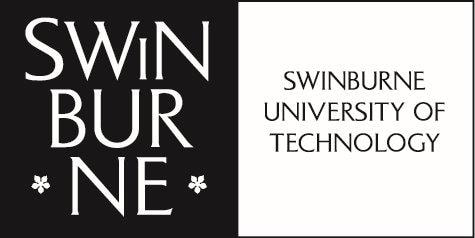When: May 13-14 2019 (main workshop), May 15-17 2019 (busy week activities)
Venue: Monday-Tuesday in AMDC 801. Wednesday-Friday in AMDC level 9 offices (TBC)
Swinburne University, AMDC Building, Room 801, Hawthorn VIC 3122.
Organisers: Ryan Shannon, Hannah Middleton
Registration: https://forms.gle/NBkKwQXQCFmBjKxo8
Summary: With the Parkes Pulsar Timing Array data release expected soon, this is an opportune time for OzGrav members to share and gain skills in pulsar timing array analysis and inference and apply them to cutting-edge data sets. This will be a 2.5+2.5 day workshop with the aim of building expertise within OzGrav members on pulsar timing array analysis and inference. The workshop will include presentations on pulsar timing array analysis and also tutorial sessions on using analysis software. This will allow OzGrav members, including PhD and masters students, to become familiar with the use of these tools and learn from attendees with expertise. Participants will also get hands-on experience working with the Parkes data sets, including being involved in the first gravitational wave searches with the data set. The workshop will also provide a “springboard” for enhancing existing tools and developing new tools for pulsar timing analysis.
Venue: Monday-Tuesday in AMDC 801. Wednesday-Friday in AMDC level 9 offices (TBC)
Swinburne University, AMDC Building, Room 801, Hawthorn VIC 3122.
Organisers: Ryan Shannon, Hannah Middleton
Registration: https://forms.gle/NBkKwQXQCFmBjKxo8
Summary: With the Parkes Pulsar Timing Array data release expected soon, this is an opportune time for OzGrav members to share and gain skills in pulsar timing array analysis and inference and apply them to cutting-edge data sets. This will be a 2.5+2.5 day workshop with the aim of building expertise within OzGrav members on pulsar timing array analysis and inference. The workshop will include presentations on pulsar timing array analysis and also tutorial sessions on using analysis software. This will allow OzGrav members, including PhD and masters students, to become familiar with the use of these tools and learn from attendees with expertise. Participants will also get hands-on experience working with the Parkes data sets, including being involved in the first gravitational wave searches with the data set. The workshop will also provide a “springboard” for enhancing existing tools and developing new tools for pulsar timing analysis.
Program
Pre-requisites before workshop:
Day 1: Single pulsar analysis
Lectures:
Introduction to pulsar timing
Introduction to pulsar inference
Young pulsar timing
Tutorials:
Using tempo2
Using enterprise
Using temponest
Simulating data (libstempo)
Activities:
Single pulsar analysis of PPTA pulsars
Discussion: Noise models for individual PPTA pulsars
Set up pipelines for stochastic background searches
Set up pipelines for continuous wave searches
Need to compare noise models for pulsars?
Day 2: Correlated signals and Future Tools
Lectures:
Gravitational wave signal in the pulsar band
Searches for gravitational wave signals
Solar system ephemeris and other correlated signals
Profile domain timing
Wide-band timing
Tutorials/activities:
Searching for gravitational waves with Enterprise
Using Bayesephem
Continue to work on previous tutorials/start analysis of PPTA data sets
Days 3-5 (optional): Continue to work on data sets/GW searches
Presentations:
Pre-requisites before workshop:
- Access to OzSTAR
- Install Enterprise on Laptops/OzSTAR
- Access to temponest on OzSTAR
- Access to PPTA data sets
- Prepare ipython notebooks
Day 1: Single pulsar analysis
Lectures:
Introduction to pulsar timing
Introduction to pulsar inference
Young pulsar timing
Tutorials:
Using tempo2
Using enterprise
Using temponest
Simulating data (libstempo)
Activities:
Single pulsar analysis of PPTA pulsars
Discussion: Noise models for individual PPTA pulsars
Set up pipelines for stochastic background searches
Set up pipelines for continuous wave searches
Need to compare noise models for pulsars?
Day 2: Correlated signals and Future Tools
Lectures:
Gravitational wave signal in the pulsar band
Searches for gravitational wave signals
Solar system ephemeris and other correlated signals
Profile domain timing
Wide-band timing
Tutorials/activities:
Searching for gravitational waves with Enterprise
Using Bayesephem
Continue to work on previous tutorials/start analysis of PPTA data sets
Days 3-5 (optional): Continue to work on data sets/GW searches
Presentations:
- Paul Lasky: Bayesian Inference
- Hannah Middleton: GWs in the pulsar band
- Boris Goncharov: Intro to inference in pulsar timing
- Marcus Lower, Aditya Parthasaranthy & Greg Ashton: Profile domain timing
- Marcus Lower & Aditya Parthasaranthy: Pulsar inference tools
- Xingjiang Zhu: Searches for GWs
- Stephen Taylor: Solar system ephemeris noise
- Tim Pennucci: Wideband Timing overview









